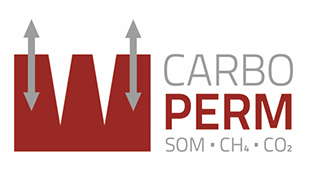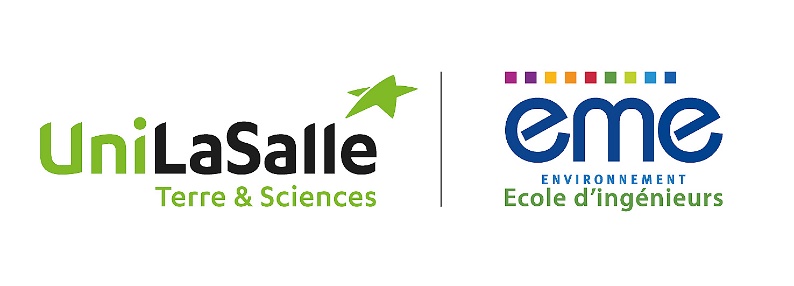COLD REGION ENVIRONMENTAL LANDSCAPES INTEGRATED SCIENCES ŌĆö CORELIS
The international Master program CORELIS ŌĆö Cold Region Landscapes Integrated Sciences had been opened in 2016 based on Institute of Earth Sciences of St. Petersburg State University. The first intake of students successful got Master of Science in 2018. The master defence of second intake of students will be held on June, 2020.
The information concerning admission 2020 is published on the official website of the Admission Commission of Saint Petersburg State University.
Cold Region Environment Landscapes Integrated Science (CORELIS)
Level of education: Master programme
Type of instruction: Full-time
Duration: 2 years
Language of instruction: English
Benefits of the programme
The educational programme is aimed at training specialists who are capable of independently carrying out theoretical and applied research in ecological, hydro-meteorological, paleogeographical, landscape, pedological and nature management processes in Polar Regions of the Earth (The Arctic, Antarctic, Permafrost zone and the upland territories).
Study areas include ŌĆ£Ecology and Environmental ManagementŌĆØ, as well as ŌĆ£HydrometeorologyŌĆØ, ŌĆ£GeographyŌĆØ and ŌĆ£Soil scienceŌĆØ.
The programme is fully delivered in English. During the first two semesters of training in Russia, leading experts of St Petersburg University, partner universities and scientific research institutes are involved in teaching. Students have an opportunity to spend their third semester on exchange in a partner university in Germany or other countries with the subsequent obtaining of the second diploma.
Students participate in expeditions to Polar Regions in course of their field practice. For example, in the previous years, student research practice was held on the base of Lammi Biological Station of Helsinki University in winter and international field stations such as the Russian scientific centre on Svalbard archipelago (part of the Arctic and Antarctic research institute), Lena River delta, Yamal and Kola peninsulas in summer.
Students of the programme regularly take part in international conferences, seminars and workshops for young scientists.
Main courses
ŌĆó Polar Science Communication and Outreach
ŌĆó Career Development in Science
ŌĆó Basics on Cold Regions Sciences
ŌĆó Arctic, Antarctic and Alpine Climate Dynamics
ŌĆó Cold Region Terrestrial and Aquatic Ecology
ŌĆó Permafrost Hydrometeorology
ŌĆó Particularities of Cold Region Geology
ŌĆó Trace gas fluxes in Permafrost
ŌĆó Isotopic methods in Polar Ecology
ŌĆó Feature of Energy and Mass Exchange in the Atmosphere Surface Layer and Soil Active Layer
ŌĆó Permafrost Affected Soils and Landscapes in a Changing Climate
ŌĆó Periglacial landscapes
ŌĆó Quaternary paleogeography of Cold Regions
ŌĆó Application of Geographic Information Systems (GIS) and Differential Global Navigation Satellite Systems
ŌĆó Water Object and Carbon Cycle of Polar and Upland Areas
ŌĆó Cold Regions: Social and Economic Aspects
ŌĆó Regional Policy in Permafrost Regions
Key skills
After completing this Ms. Program, the students
ŌĆó understand species evolution, patterns of biodiversity, pedology
ŌĆó independently carry out: measurements, analysis, interpretation and data processing
ŌĆó understand the role of a changing climate within biogeochemical cycles of environment processes
ŌĆó have gained advanced knowledge of structure, functioning and vulnerability of polar and upland ecosystems
ŌĆó are knowledgeable of modern methods of ecological research, regulation, risk assessment and constructing mathematical models of the ecosystem
ŌĆó have gained knowledge about interaction of the atmosphere and hydrosphere, prospective areas for development
ŌĆó have knowledge and skills in field sampling strategy, working with special scientific equipment for analytical procedures in biology and geoecology
ŌĆó are able to understand and review international regulations on Polar study
ŌĆó have gained advanced knowledge of the structure of environmental systems and effects of basic cryogenic processes, types and dynamics of ground ices, glaciers and water bodies
ŌĆó can evaluate anthropogenic impacts on polar, upland, and periglacial ecosystems
ŌĆó are able to evaluate the impact of global climate change on Polar environment
Career opportunities
Programme graduates can apply their expertise in the areas of scientific research, industrial operations, planning, education and administration related to the use of geoecological, hydrometeorological, paleogeographical and pedogogical methods in the study of polar and mountain regions.
PARTNERS
The main partners of the Ms. Program are St Petersburg and Hamburg Universities. Other Russian, German, Norwegian and Finnish universities as well as scientific institutes participate in the programme development.
Employers take an active part in the teaching process, organization of expeditions and providing internships and work placements for students. Among the key employers are Russian and international scientific institutions focusing on Polar research and oil and gas companies based in the Arctic shelf and North Ocean Road.






